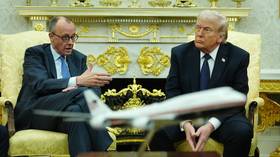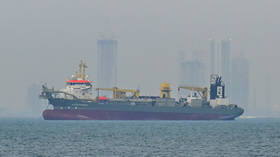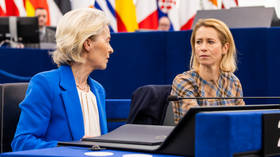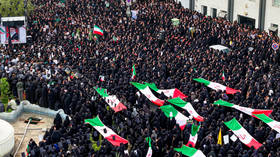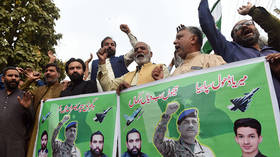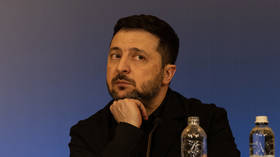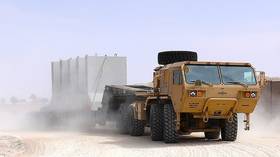Russian cities rewarded for WW2 heroics
On his last working day as president, Vladimir Putin has presented five Russian cities with honorary awards. The aim is to foster pride among Russians for the heroic deeds of those who fought the Nazi invasion during WW2.
Military Glory Certificates were handed to Voronezh and Luga Russia’s West; the northern city of Polyarny and Rostov-on-Don and Tuapse in the South.
Twenty-four million Russians died during the Great Patriotic War. In Tuapse bodies are still being found. In the days of the war the city refused to surrender.
“Fascists would never take Tuapse. Believe me!” a WW2 veteran assures. Her memories of the war are still vivid.
“It was Stalin’s order – Not one step backwards! Fight yourselves into the ground, do whatever you can do! Fascists must be stopped!” she said.
Local historians are still proud of the vital role their city played.
“We had to stay strong in case Turkey joined the war, or it would open two straits for German and Italian fleets. That would have meant death for Russia’s Black Sea fleet,” Tuapse Defence Museum director Eduard Pyatigorsky remembers.
Tuapse has always revered the men and women who died in its defence, and now Russia has acknowledged them with one of its highest honours.
Twelve cities in the USSR were awarded the titles Hero Cities – Cities of Military Glory – after the WW2 in 1945. The first four to deserve the honour were Leningrad (St. Petersburg now), Stalingrad (Volgograd now), and Ukraine’s Sevastopol and Odessa. In 1965 Moscow and Kiev joined the list.
The tradition was revived in 2006, within the last two years 13 Russian cities were awarded the honourable title.



